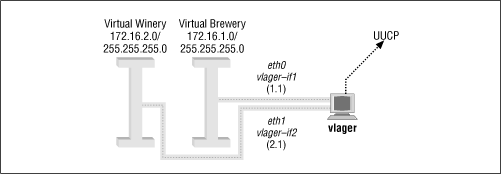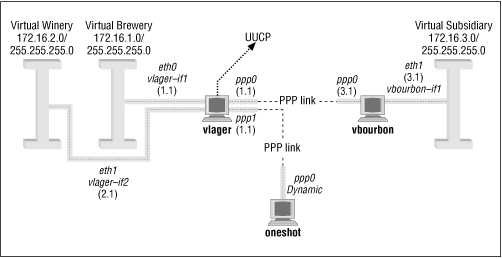Appendix A. Example Network: The Virtual Brewery
Throughout this book we've used the following example that is a little less complex than Groucho Marx University and may be closer to the tasks you will actually encounter.
The Virtual Brewery is a small company that brews, as the name suggests, virtual beer. To manage their business more efficiently, the virtual brewers want to network their computers, which all happen to be PCs running the brightest and shiniest production Linux kernel. Figure A.1 shows the network configuration.
On the same floor, just across the hall, there's the Virtual Winery, which works closely with the brewery. The vintners run an Ethernet of their own. Quite naturally, the two companies want to link their networks once they are operational. As a first step, they want to set up a gateway host that forwards datagrams between the two subnets. Later, they also want to have a UUCP link to the outside world, through which they exchange mail and news. In the long run, they also want to set up PPP connections to connect to offsite locations and to the Internet.
The Virtual Brewery and the Virtual Winery each have a class C subnet of the Brewery's class B network, and gateway to each other via the host vlager, which also supports the UUCP connection. Figure A.2 shows the configuration.
Figure A.1: The Virtual Brewery and Virtual Winery subnets

Figure A.2: The Virtual Brewery Network

